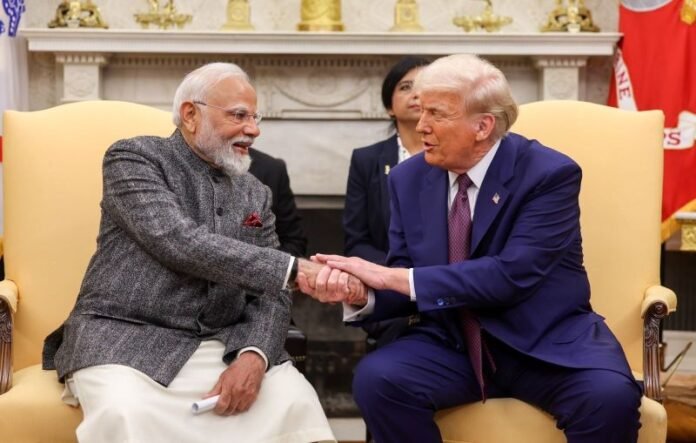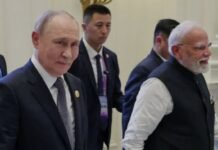India has made it clear that it will continue to purchase crude oil from Russia, standing firm against recent threats of economic penalties issued by former U.S. President Donald Trump. Despite his claims that India may stop buying Russian oil and his decision to impose a new 25% tariff on Indian exports, top Indian officials have confirmed there will be no change in the country’s energy strategy at this time.
In recent statements, Trump not only introduced higher tariffs on Indian goods but also warned of additional repercussions for India’s ongoing military and energy trade with Russia. However, Indian authorities have stated that these oil deals are based on long-term contracts and cannot be disrupted abruptly due to political pressure. Energy security and price stability remain at the core of India’s policy decisions.
According to government insiders, India’s continued import of Russian crude has been instrumental in maintaining relatively stable global oil prices. Despite the sanctions and price caps placed by Western countries on Russia’s energy sector, Indian oil purchases have ensured that Russian supply remains in circulation, helping prevent a global surge in fuel costs. Officials have explained that Indian refineries are buying Russian oil below the internationally fixed price cap, thus staying within global norms while meeting domestic energy demands.
Indian officials have also stressed that, unlike certain other oil-producing nations under direct sanctions, Russian crude is still legally accessible on the global market. The payment and transport arrangements used by Indian companies have been carefully designed to remain compliant with current international frameworks, ensuring that India does not violate any global rules while securing affordable energy for its population.
India, being one of the world’s largest oil importers, cannot afford disruptions in its supply chains. Its growing economy and energy needs require stable, long-term planning. Cutting off Russian imports overnight would not only hurt India’s economy but also impact global oil dynamics. Government representatives have underscored that national interest and energy security will always guide decision-making, irrespective of foreign political commentary.
While some foreign leaders have suggested that India might change its position under pressure, Indian policy remains focused on securing the best deals to support its economic momentum. Claims that India is altering its oil import patterns are inaccurate and misleading, say those familiar with the matter.
The continued acquisition of discounted Russian oil has allowed India to keep inflation under control and shield consumers from the shocks of rising global prices. As per industry observers, this strategy has helped stabilize the domestic fuel market while also benefiting global consumers by preventing an even greater surge in international oil prices.
It is also notable that Indian policymakers have rejected any notion of aligning energy policy with electoral politics or international demands that compromise its autonomy. While previous U.S. statements have suggested that India’s ties with Russia could come at a cost, Indian authorities have reiterated that their partnerships are based on sovereign needs and strategic balance.
Despite claims that India would stop importing oil from Russia, no such policy change has been initiated. The Indian government continues to view Russian oil as an important part of its broader energy diversification plan, alongside imports from the Middle East, Africa, and the United States.
This approach not only supports India’s economic growth but also reinforces its diplomatic stance as an independent and sovereign nation that makes choices based on its own national interest.
This news is sourced from international web-based media reports.




